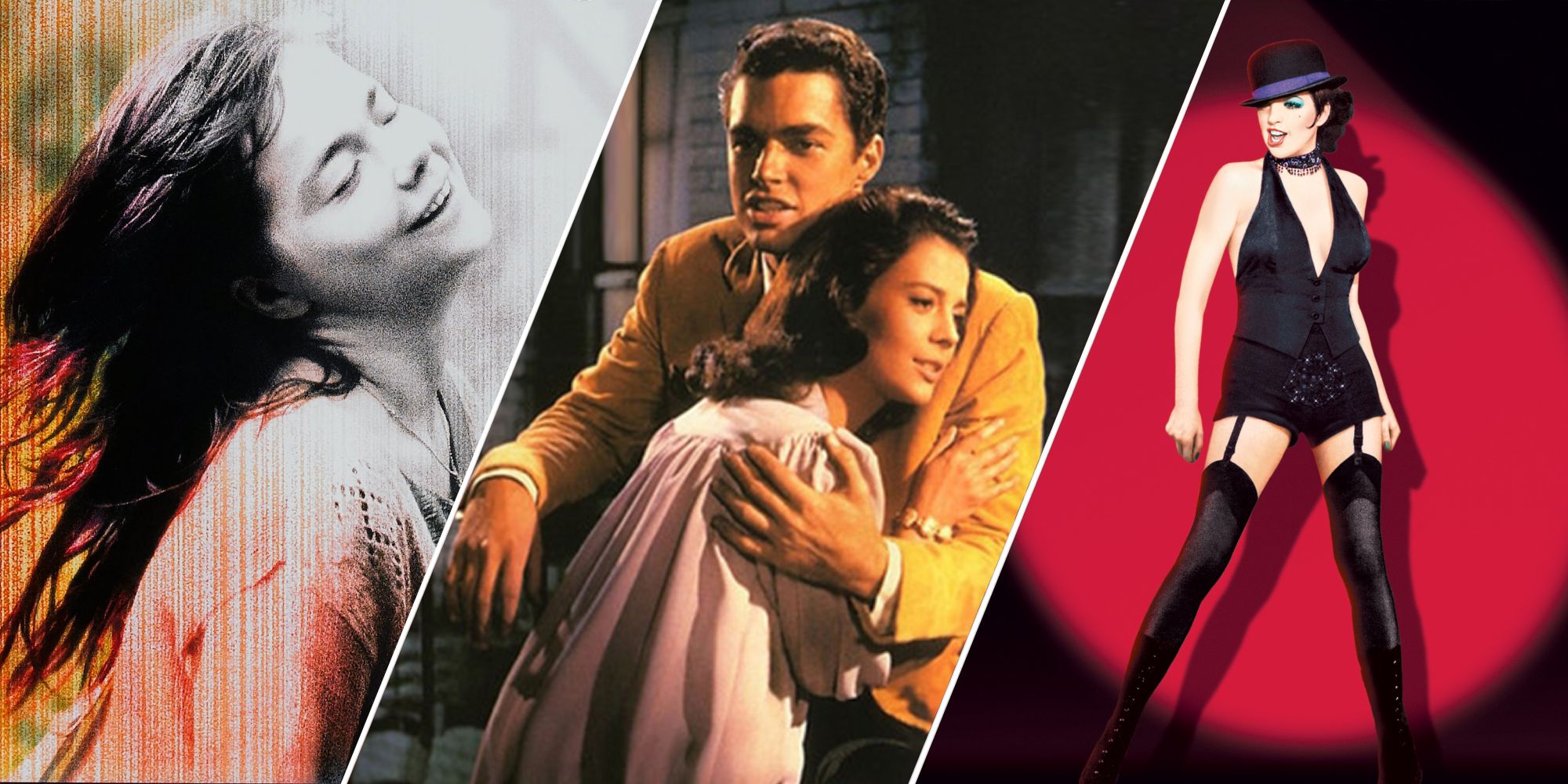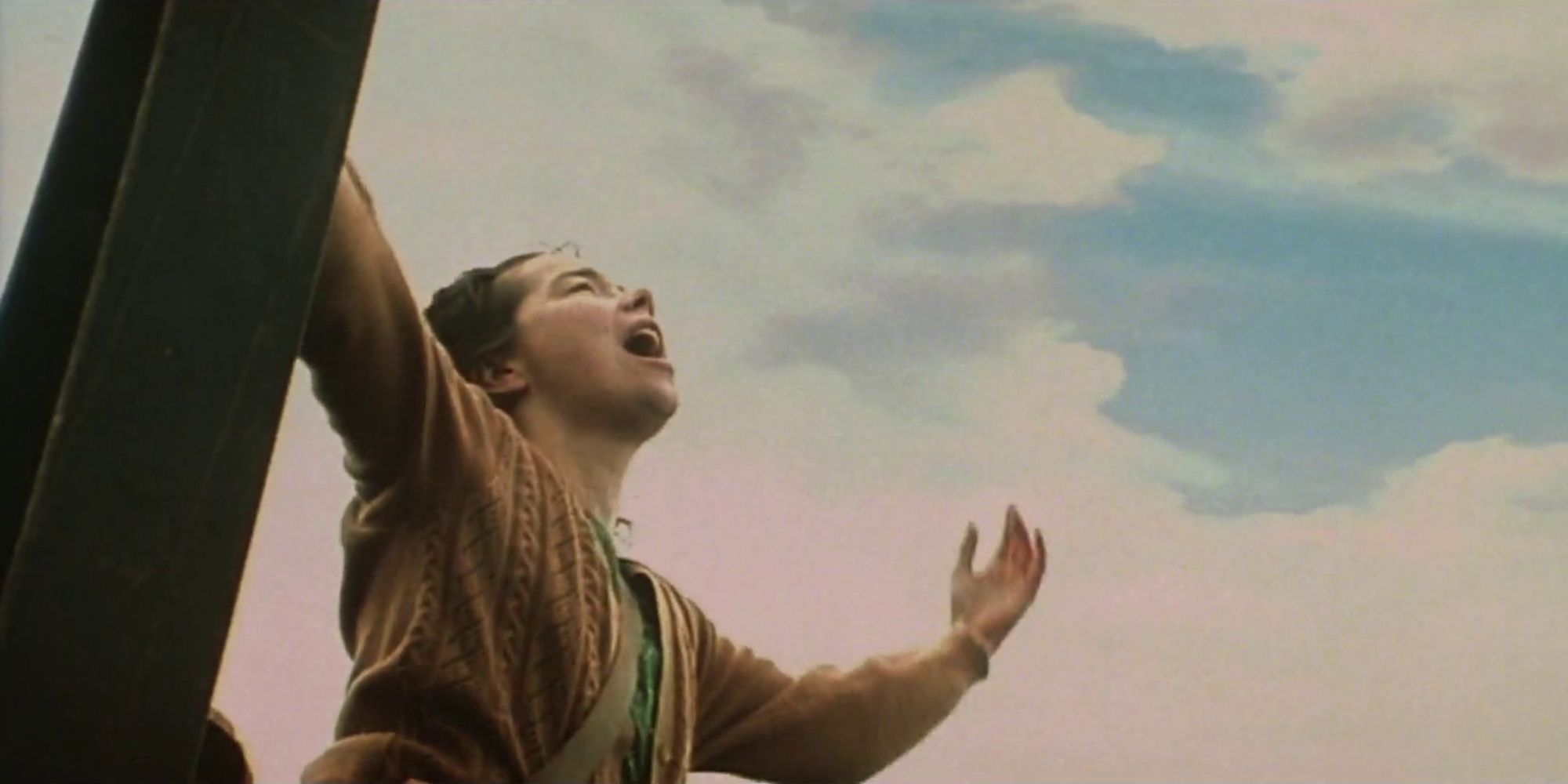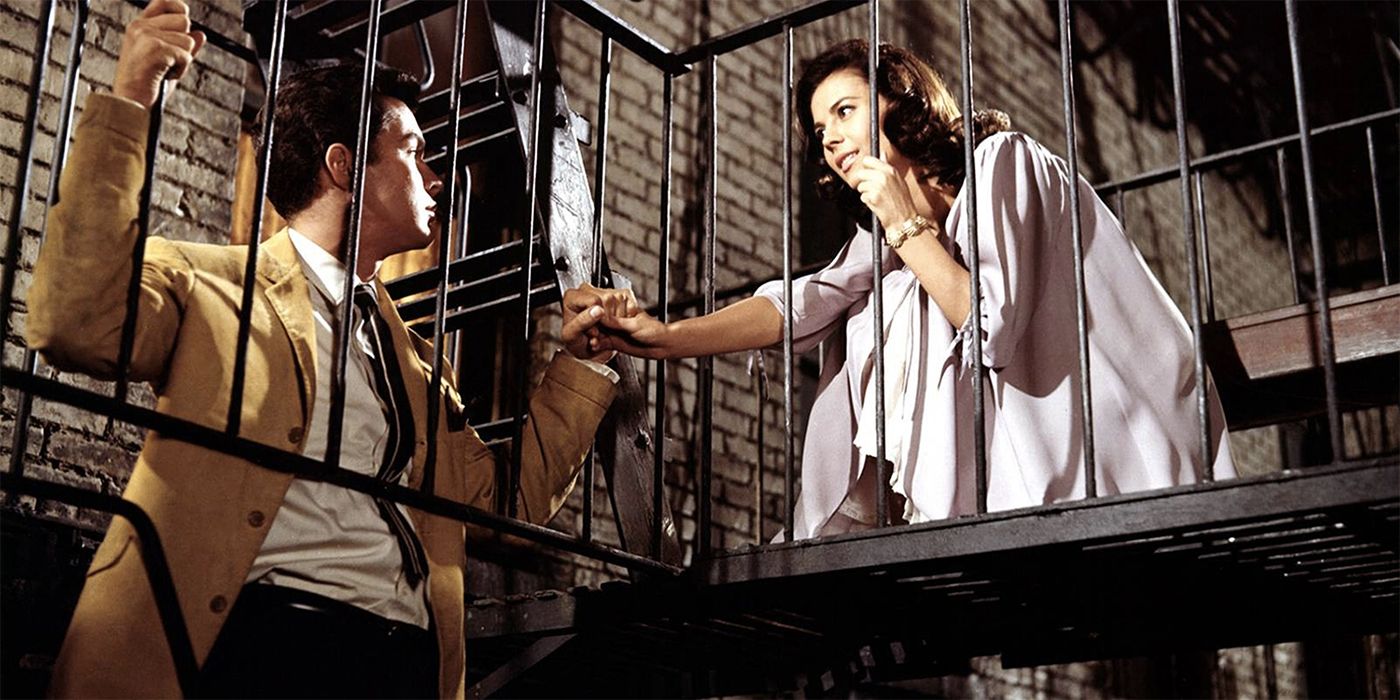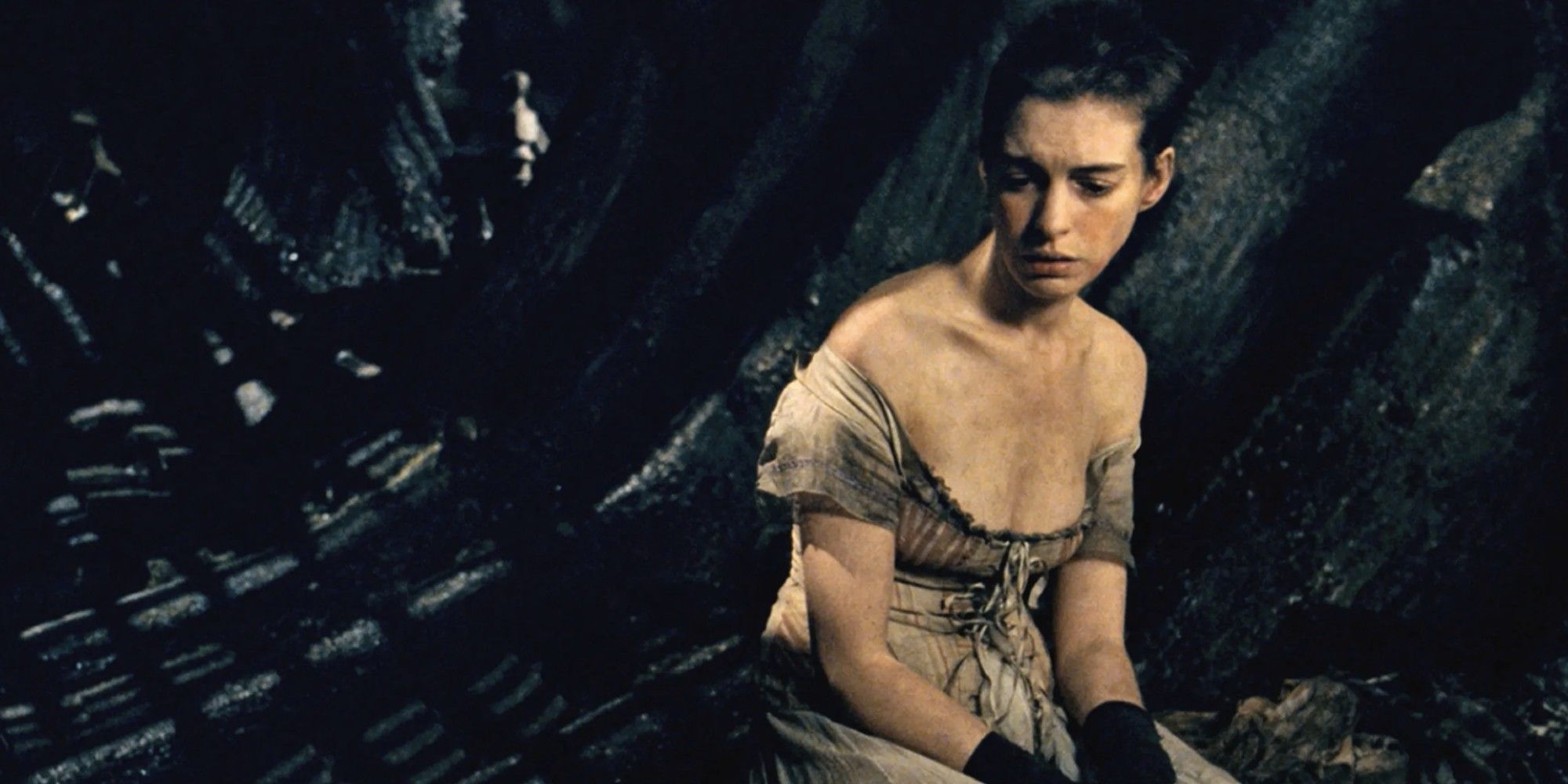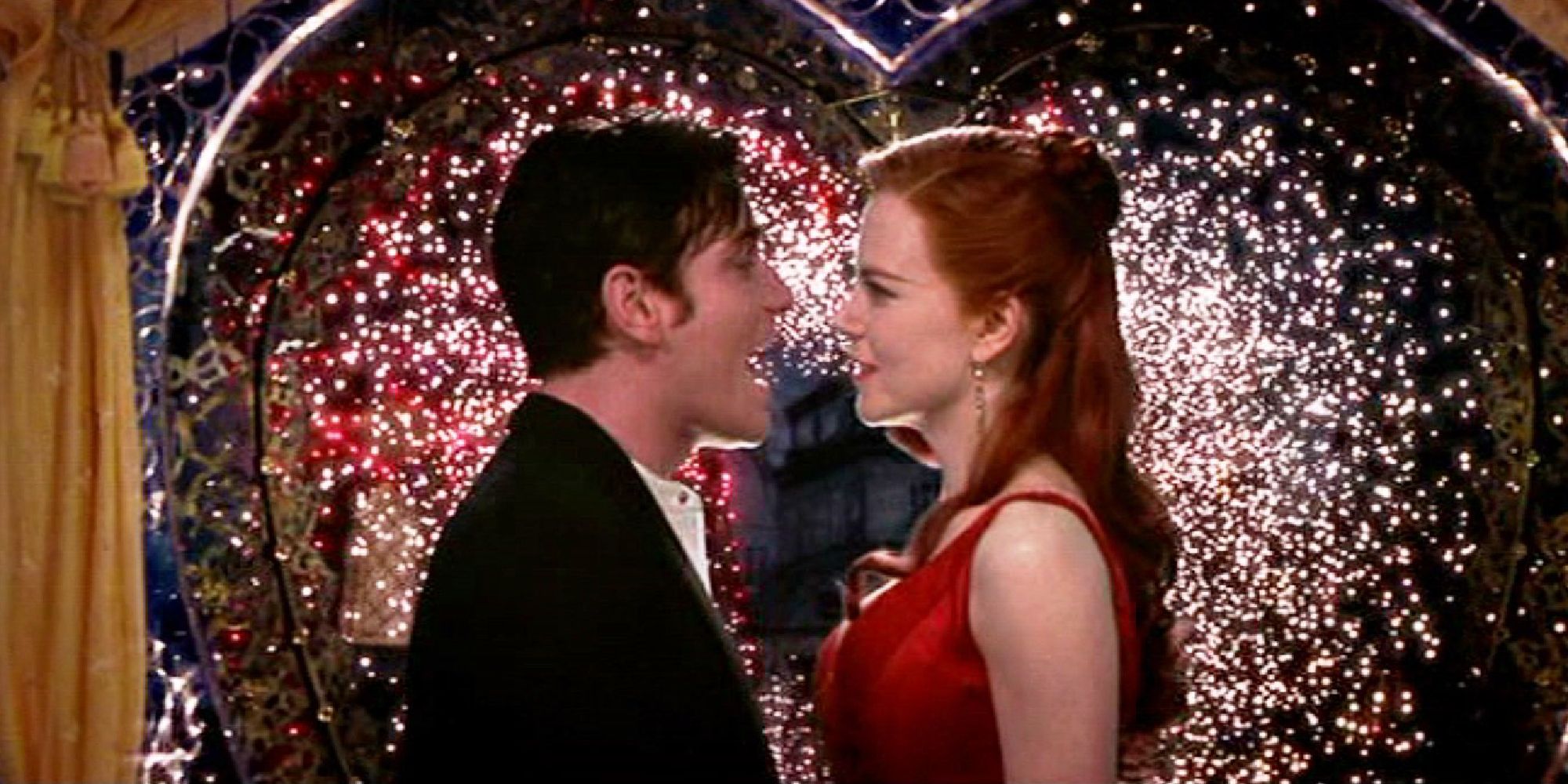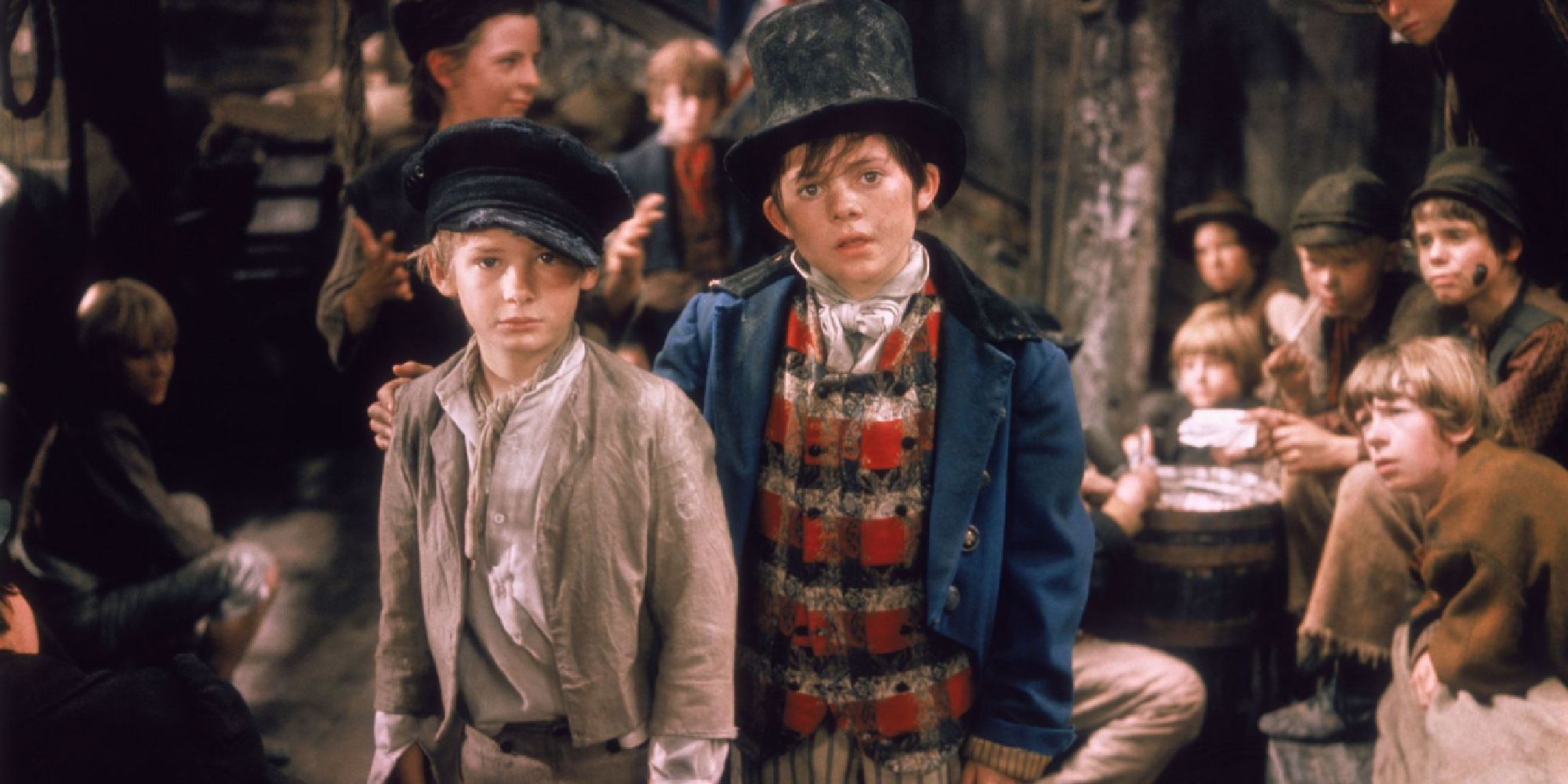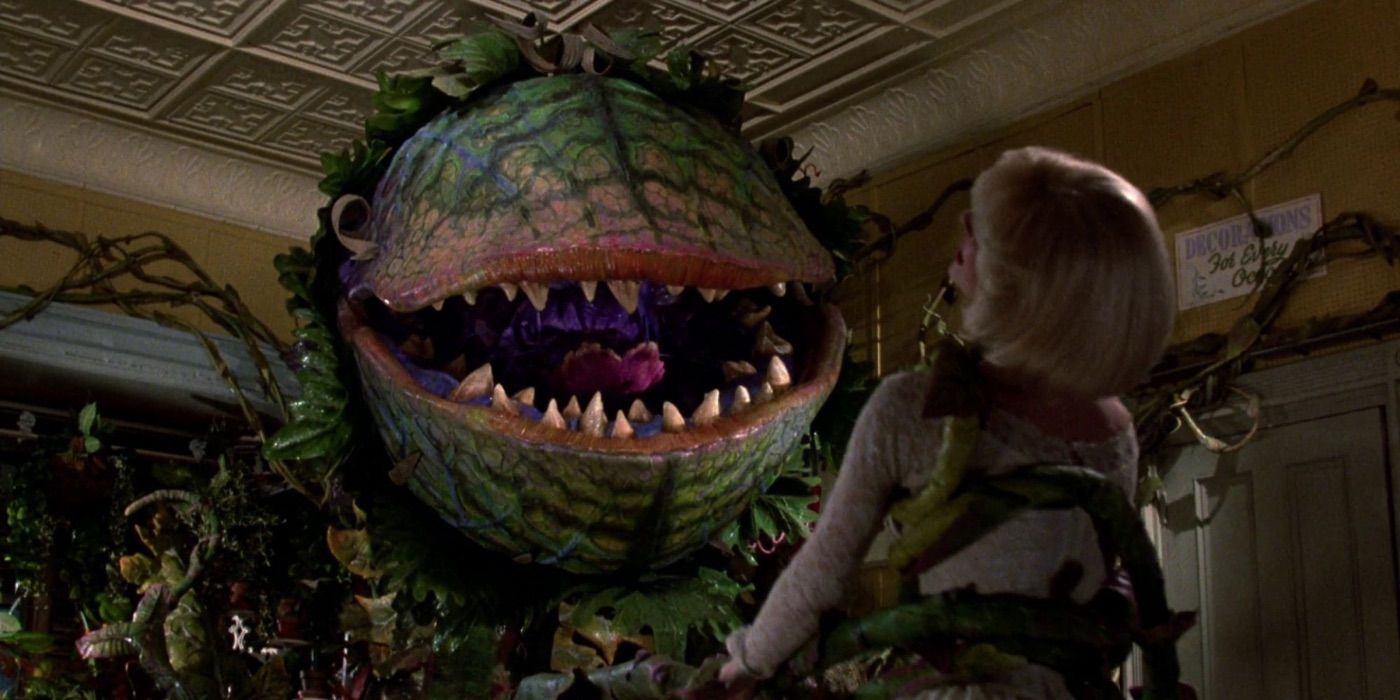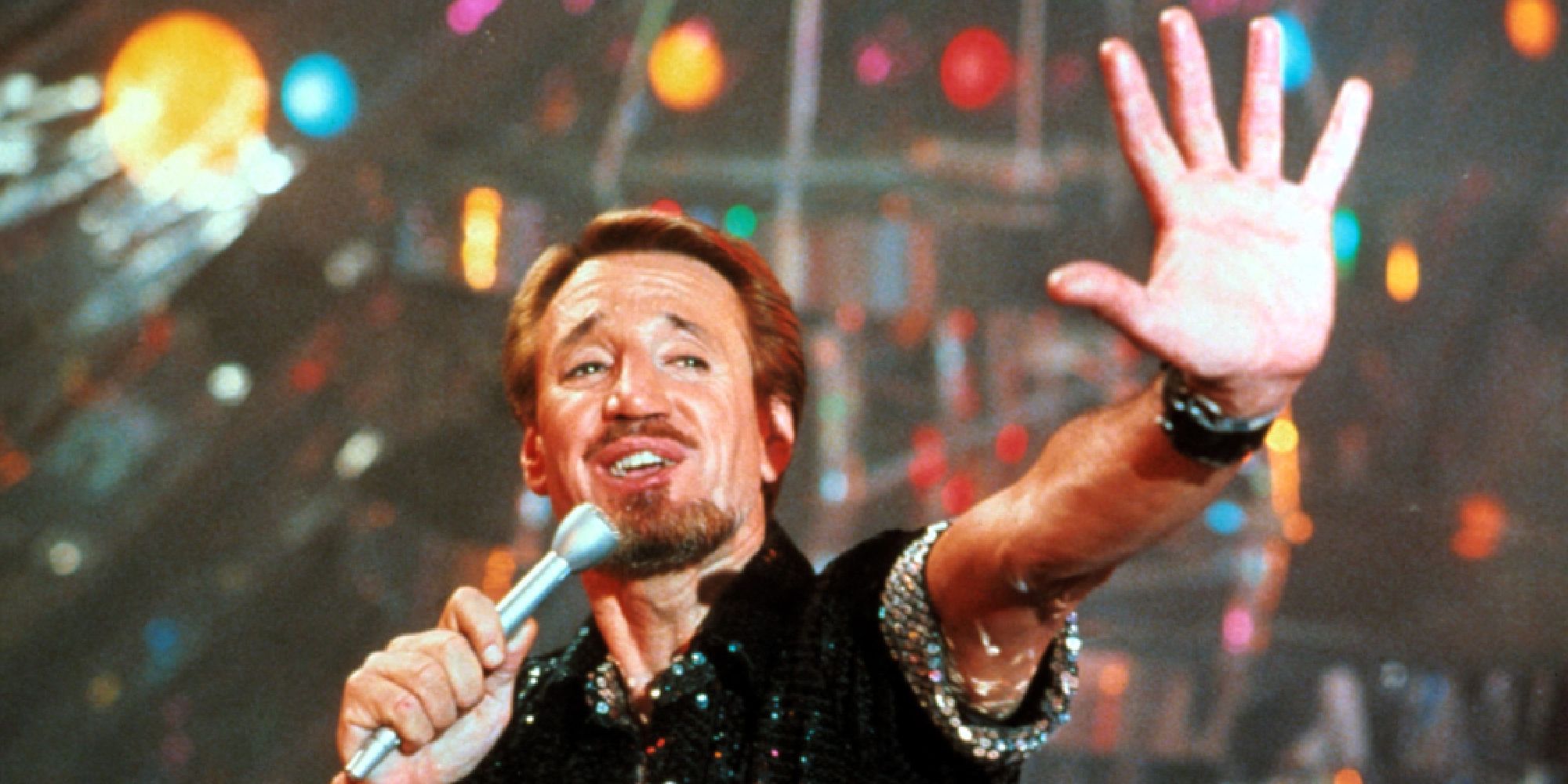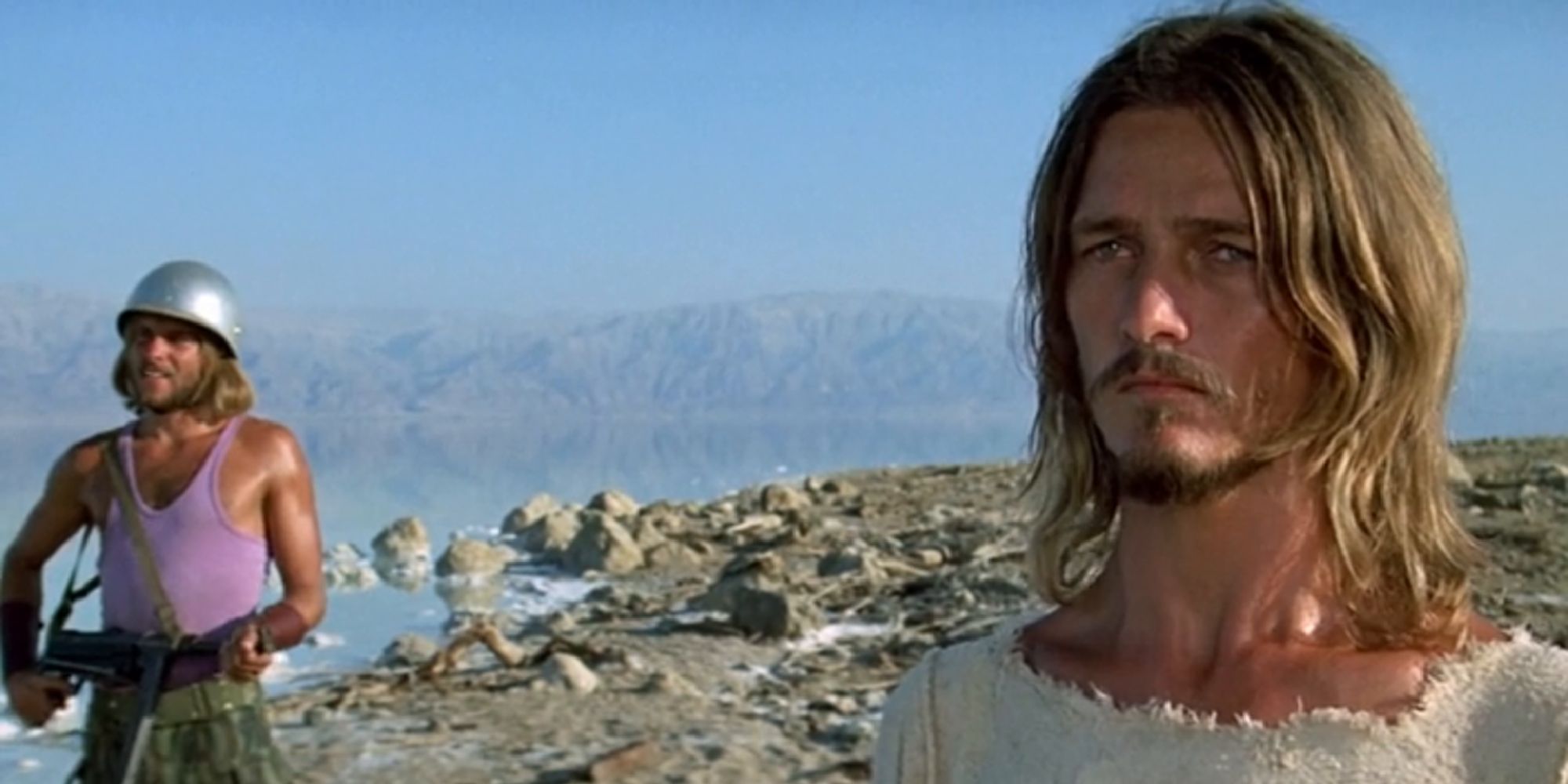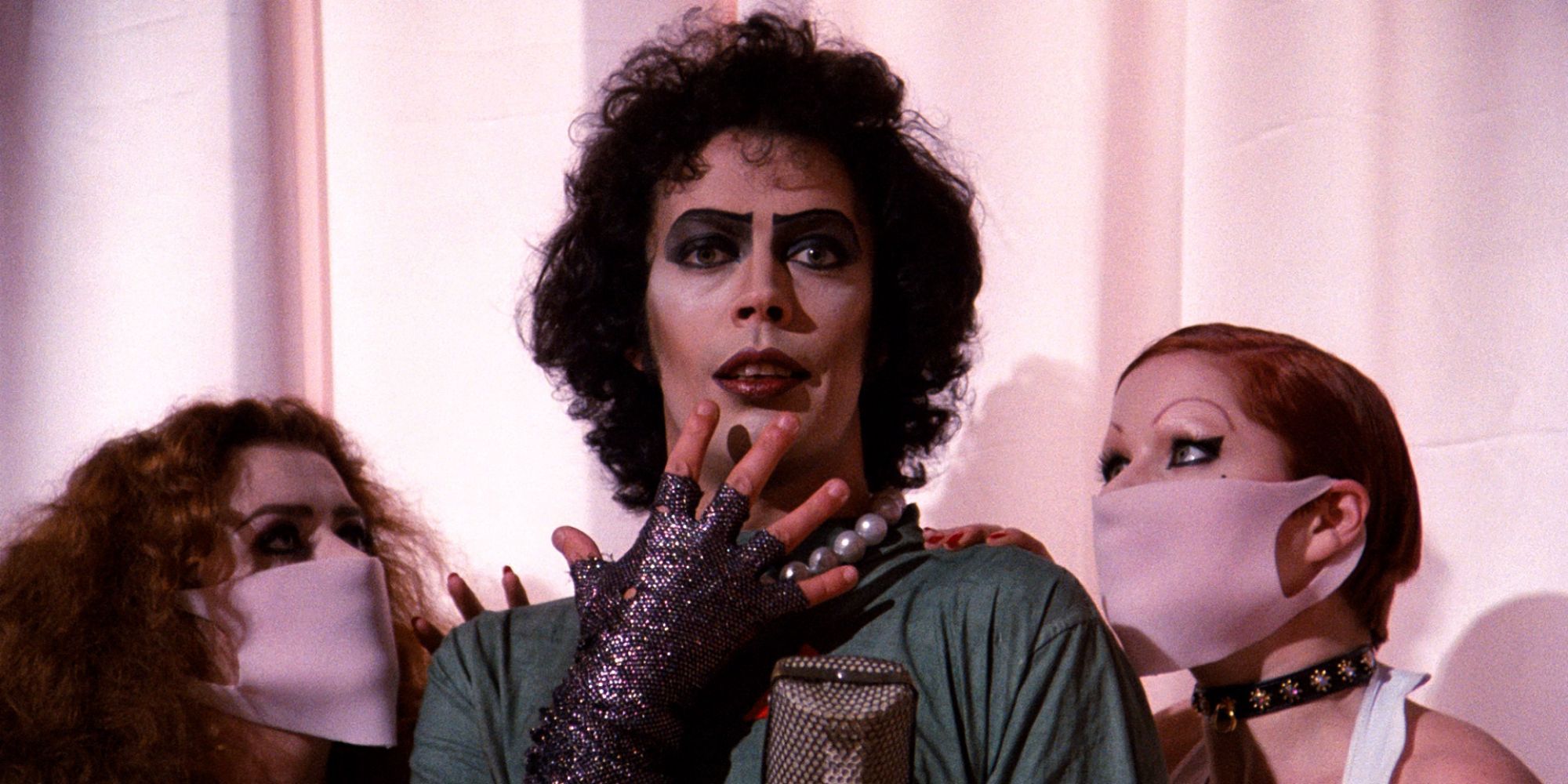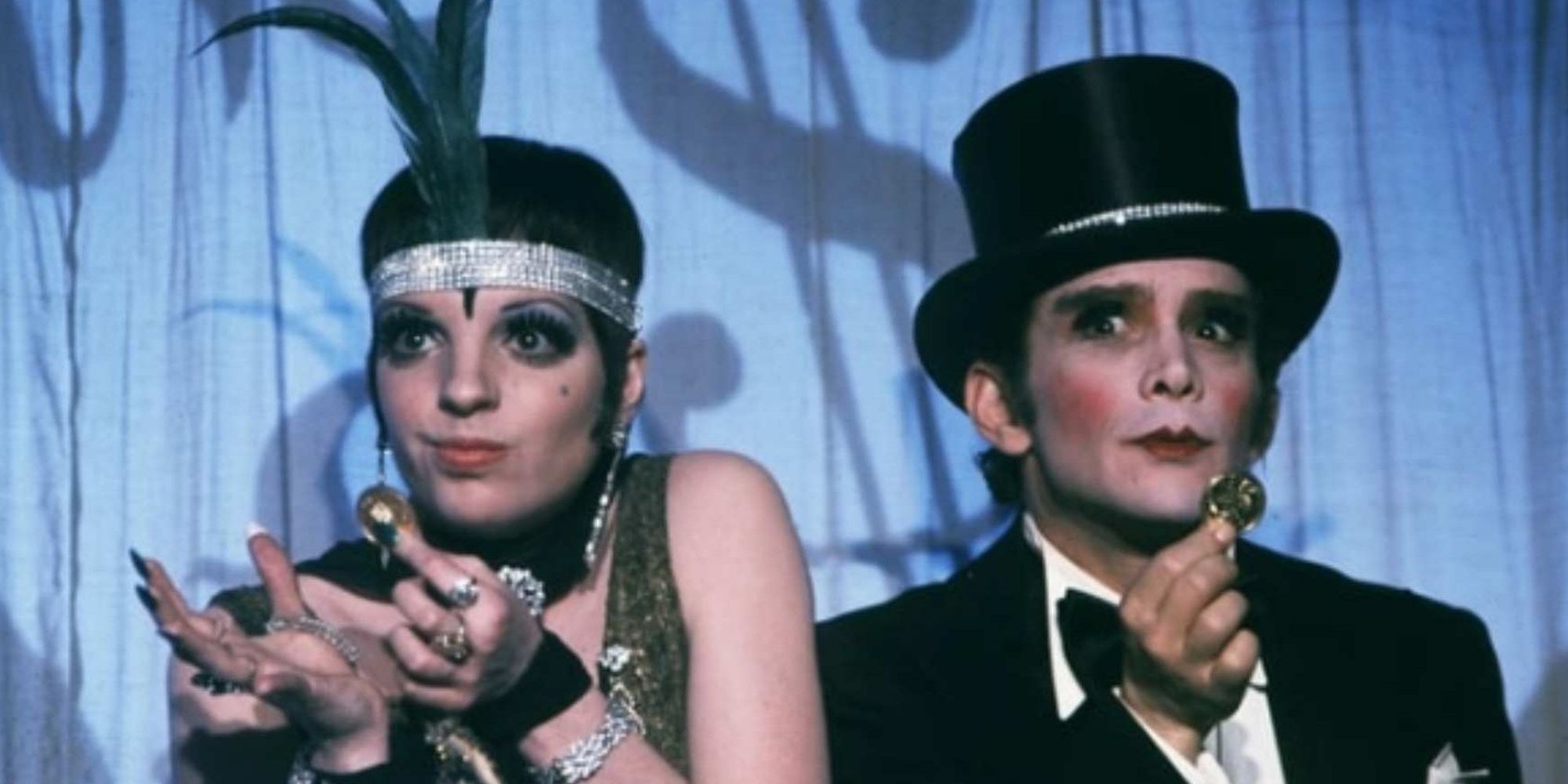There's a good chance that hearing the words "movie musical" would make most people think of colorful, happy images and cheerful songs. Musicals can be very joyful, with many of the most famous musical films out there being feel-good affairs. They're good comfort movies, and many of the best ones present realities where opportunities to fall in love are seemingly everywhere, and people can break into song at the drop of a hat.
While this is an accurate way to describe some musicals, it's far from fair to describe all musicals in this way. Some filmmakers have used the genre to tell stories that are anything but cheery, with music-filled tales of tragedy, broken hearts, and death. The following 10 movies are some of the darkest, bleakest musicals of all time, and may prove shocking to those who think of the genre as one that exclusively features goofy songs and gooey sentimentality.
There will be spoilers discussed for the following musicals.
'Dancer in the Dark' (2000)
A divisive musical starring Björk - who's best known for her music career - Dancer in the Dark tells an impactful and tragic story that's hard to forget. It's set in the 1960s, and follows a single mother named Selma who's going blind, and wants to do whatever she can to raise money for her only child to have an eye operation that will prevent him from facing a similar ordeal.
Things get darker and more despairing as Dancer in the Dark goes on, forcing Selma to retreat into a fantasy world that's inspired by her love of musical theater. The musical numbers thereby play out internally, which ensures the world around Selma never offers much hope, and all she can do is wish that real life functioned like life in musicals...
'West Side Story' (1961)
It shouldn't be too surprising that a musical retelling of Romeo and Juliet ends up being a bit of a downer. West Side Story famously takes William Shakespeare's story of doomed, young love and transports it into the 20th century, showing two people on opposite sides of a violent gang war falling in love, and the tragic consequences that flow from their romance.
At the end of it all, the conclusion isn't quite as downbeat as the original play's ending, but it's also not too far off. The equally compelling 2021 update/remake of the 1961 movie also pulled no punches when it came to showing two young people's love being torn apart on top of the numerous deaths that befall this musical's cast of characters.
'Les Misérables' (2012)
To put it bluntly, Les Misérables is quite miserable. Even if it builds to an ending that offers hope and redemption for some characters, there's a good deal of sadness that those characters (and the audience watching them) have to get through beforehand.
This musical adaptation takes the epic novel by Victor Hugo about a thief's quest for redemption amidst a time of great social upheaval and doesn't make it any happier because of the music. Death, poverty, and injustice are all explored in depth throughout this almost three-hour musical, and it's hard to come out the other side feeling happier than you were going in.
'Moulin Rouge!' (2001)
Moulin Rouge! can be quite a silly, bombastic, and explosive movie musical when it wants to be, and indeed, it is a silly, bombastic, and explosive movie musical for much of its runtime. Baz Luhrmann is famous for his maximalist style, and out of all his movies, Moulin Rouge! might well be the one with the most noise and in-your-face visuals which, when combined with its lightning-fast editing, can make for an overwhelming (and sometimes fun) experience.
Yet the film's story is a deeply sad one, and it makes you aware of that right from the start. Ewan McGregor's character states at the beginning that "The woman I love is dead," so viewers will know it's going to be a doomed romance from the get-go.
'Oliver!' (1968)
While Oliver! might be a movie about child characters, and feature plenty of chipper-sounding songs, it's not exactly a kid's movie. It's somewhat dark from its premise alone, seeing as it centers on a boy escaping his orphanage and joining a gang of child pickpockets, but becomes far bleaker in its second half.
Even though this film was G-rated, many of the acts committed by its main antagonist, Bill Sikes, are far more violent and horrific than those done by most family movie villains. He beats one of the film's most sympathetic characters to death in front of Oliver himself, and also takes his own life at the musical's end in a grisly fashion. It's incredibly dark stuff, and makes it surprising that Oliver! is sometimes considered a family movie at all.
'Little Shop of Horrors' (1986)
Combining horror, romance, music, and comedy in a near-perfect fashion, the movie adaptation of Little Shop of Horrors is one of the very best musicals of the 1980s. It centers on a young man who raises a living plant that grows at an incredibly fast rate, all the while having an appetite for blood and, eventually, entire human beings.
The movie's premise is already quite a bit darker and more violent than most movie musicals, but the theatrical cut's ending ensures it doesn't end on a downer note, as it spares the two main characters. That's not so for the director's cut ending, where the two main characters die, and the plant is implied to continue growing large enough to take over the world. Either way, the story's a horror one, but the director's cut ending takes things to a whole other level.
'All That Jazz' (1979)
Bob Fosse made something of a biopic about himself with All That Jazz. The film's main character isn't called Bob Fosse, but the real Fosse and the fictional Joe Gideon have a great deal in common. Each drunk and took pills frequently, both were workaholics consistently pushed to the brink, and each were womanizers who couldn't keep all their affairs in order.
Fosse even predicted his own fate in All That Jazz, with Gideon passing away of a heart attack at the film's conclusion, and Fosse himself dying about eight years after the film's release. With All That Jazz essentially being about a man working himself to death because of his relentless lifestyle, it's not exactly a happy film.
'Jesus Christ Superstar' (1973)
Jesus Christ Superstar takes the final days of Jesus Christ's life - the lead-up to his crucifixion - and makes it into a rock opera musical. It's a fairly wild idea, but it worked well enough to make it an iconic stage musical that got a film adaptation in 1973.
The songs are catchy, and the style is often bold and entertaining, but it doesn't pull many punches in telling what's essentially a very violent story. Given that it ends with the crucifixion and doesn't focus on Jesus's resurrection, it leaves things on a bleak note, and it doesn't help that the crucifixion itself is shown in fairly graphic detail, too.
'The Rocky Horror Picture Show' (1975)
For much of The Rocky Horror Picture Show's runtime, it's a campy, over-the-top, and darkly funny musical romp. As long as you can get past a few of the more extreme moments, most of it's not too dark or depressing, especially because the dark aspects of the story are blended with morbid humor.
But when it gets to the ending, The Rocky Horror Picture Show emerges as a surprising tragedy. A bunch of people get killed off, and even if the main characters, Brad and Janet, get to leave the strange castle the musical's set in with their lives, their relationship may be permanently damaged, and they're likely traumatized by what they went through. The final scenes really do emphasize the "Horror" part of this musical's title.
'Cabaret' (1972)
Cabaret is a bold and incredibly unique film that helped redefine what a movie musical could be. It's set in Berlin during the 1930s, right as the Nazi Party were starting to gain power, and focuses on a group of entertainers who work at a nightclub, ignoring what's going on around them until it's too late.
The focus on Fascism's influence and the danger such an ideology poses reveals itself more clearly as the movie goes on, likely shocking viewers the same way the film's characters are surprised by it. Cabaret's a serious musical that tackles grim themes in an organic, brutally honest way. While this might turn some viewers off, for others, that's one of the things that makes it such an important classic.

